By Ebonee Johnikin, Communications Director, Foundation for the Mid South
Economic mobility is not just about wages or job titles. It is about whether families can climb the ladder, build security, and pass opportunity on to the next generation. In the Mid South, those questions loom large.
This summer, the Foundation for the Mid South brought people together for Pathways to Progress: Economic Mobility in the Delta, a virtual conversation with leaders from the Federal Reserve Bank of St. Louis, Hope Credit Union, and our own team at FMS. It was an honest look at the challenges facing the region, but also a chance to lift up real solutions that can help the Delta take its next steps forward.
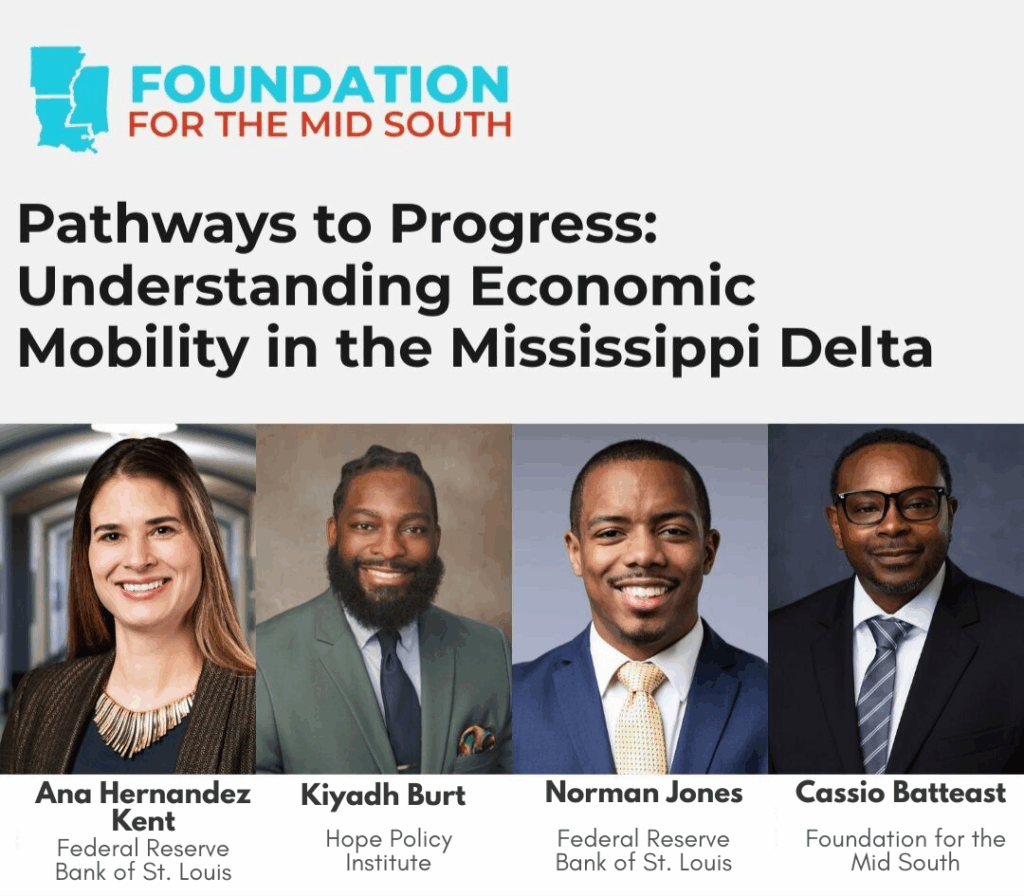
Disconnected Youth and Banking Deserts
Norman Jones of the Federal Reserve Bank of St. Louis set the stage with stark numbers: “Sixteen percent of youth nationwide are disconnected, and in rural areas like the Mississippi Delta, that number climbs to nearly 20%.”
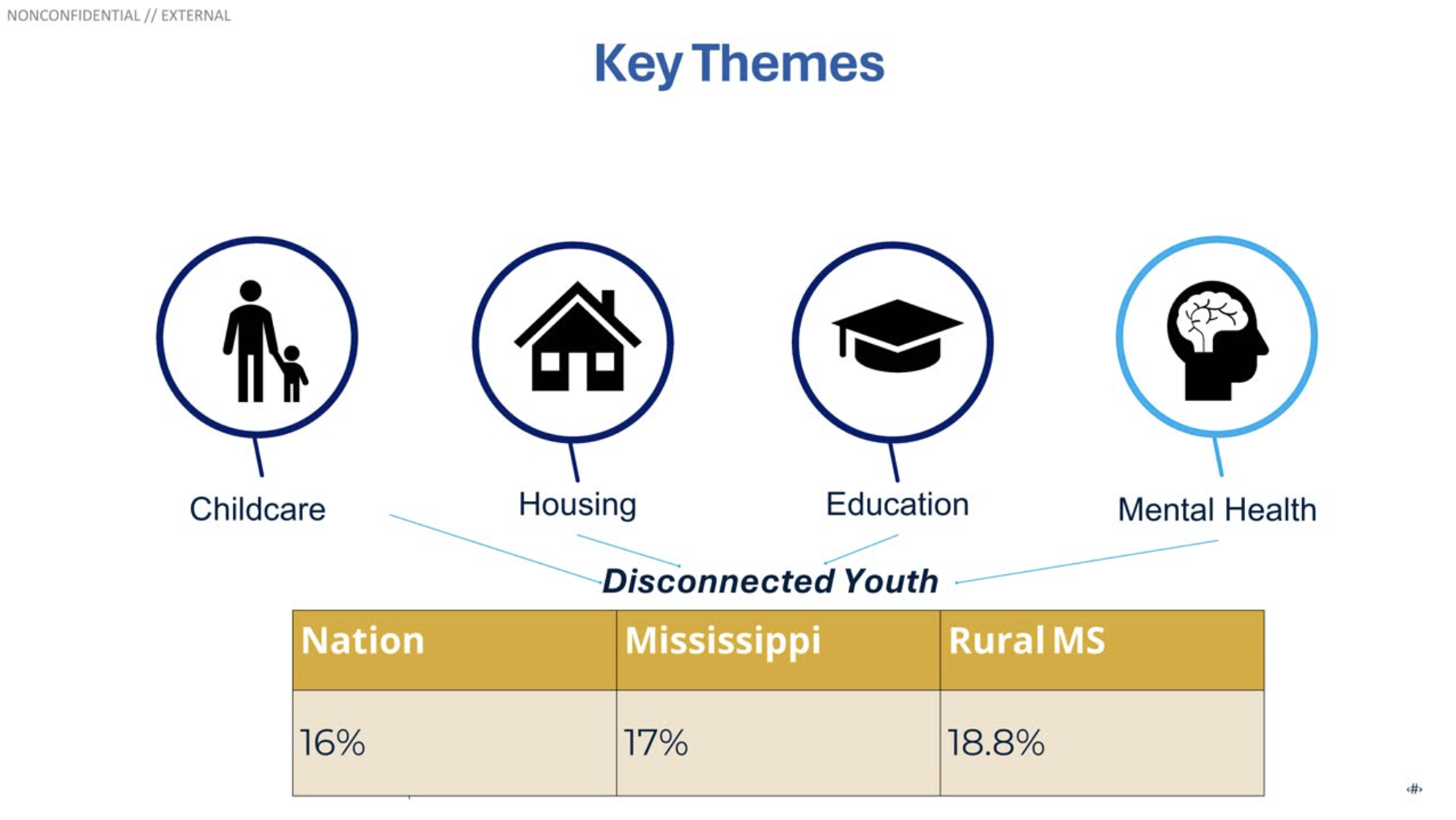
Disconnected youth, young people between 18 and 24 who are neither in school nor employed, represent both an economic challenge and a lost well of potential. Without pathways into education or work, entire communities lose out on their talent and contributions.
Jones also drew attention to another barrier: banking deserts. “Nearly half of small businesses still rely on small banks, but too many communities in the Delta are banking deserts, entire census tracts with no physical bank.” Without access to financial institutions, small businesses and families struggle to access credit, build wealth, or grow.
Closing the Wealth Gap Through Access
Hope Credit Union has spent decades tackling these inequities head-on. “In our five-state footprint, 8% of households are unbanked, twice the national rate. Nearly half of our members had no bank account before joining Hope,” Kiyadh Burt explained.
By deliberately building branches in communities long ignored by traditional banking, Hope has generated $3.9 billion in financing and served more than 2.7 million people. As Burt of Hope explained, “The racial wealth gap does not close on its own. It takes affordable housing, access to small business loans, and financial products designed for first-time homebuyers.”
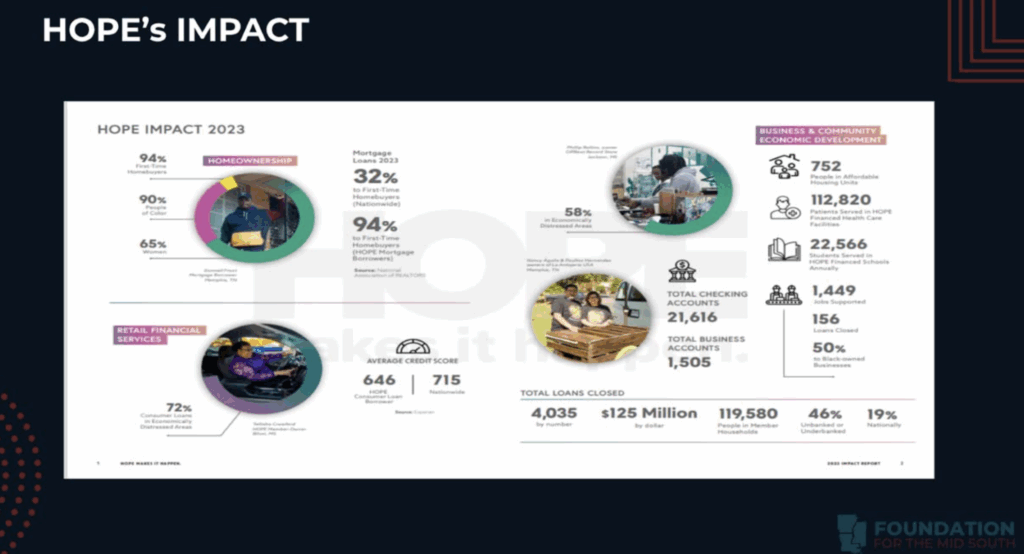
The data is sobering. Dr. Ana Hernandez Kent of the Federal Reserve Bank of St. Louis noted that “the top 20 percent of households hold an average of $3.8 million in wealth, while the bottom 20 percent have just $160,000. Half the population owns only 1 to 3 percent of total wealth.” For Black households in particular, the gap is even wider and continues to grow.
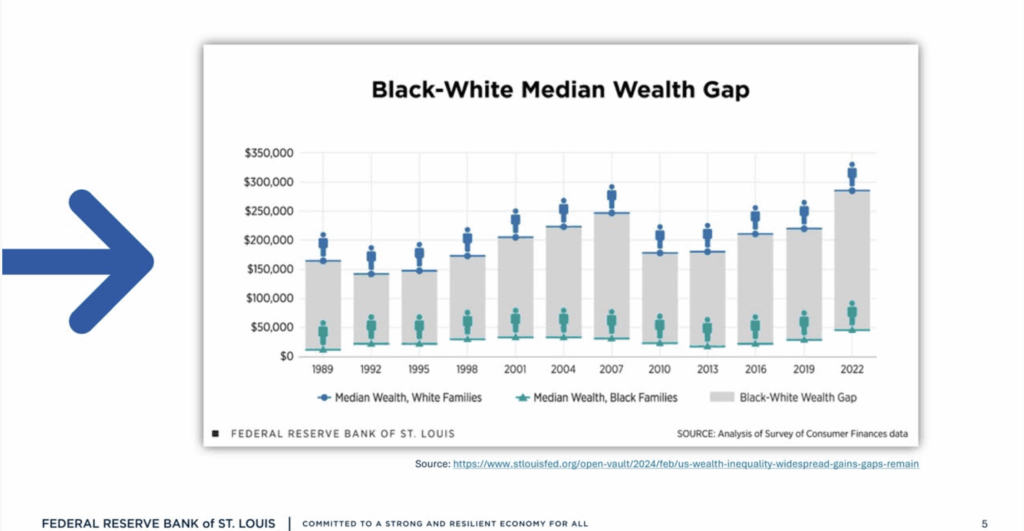
From Barriers to Pathways
Behind those numbers are real barriers to work and stability. Family responsibilities keep one in four people out of the workforce. Ill health discourages another 10 percent. Many others simply cannot find jobs in their communities.
That is where the Foundation for the Mid South steps in.
“Our workforce initiatives are focused on underserved communities, disconnected youth, women, veterans, and those returning from incarceration,” said Cassio Batteast, Vice President of Programs at FMS. “The goal is long-term: to connect people to thriving industries and sustainable career pathways.”
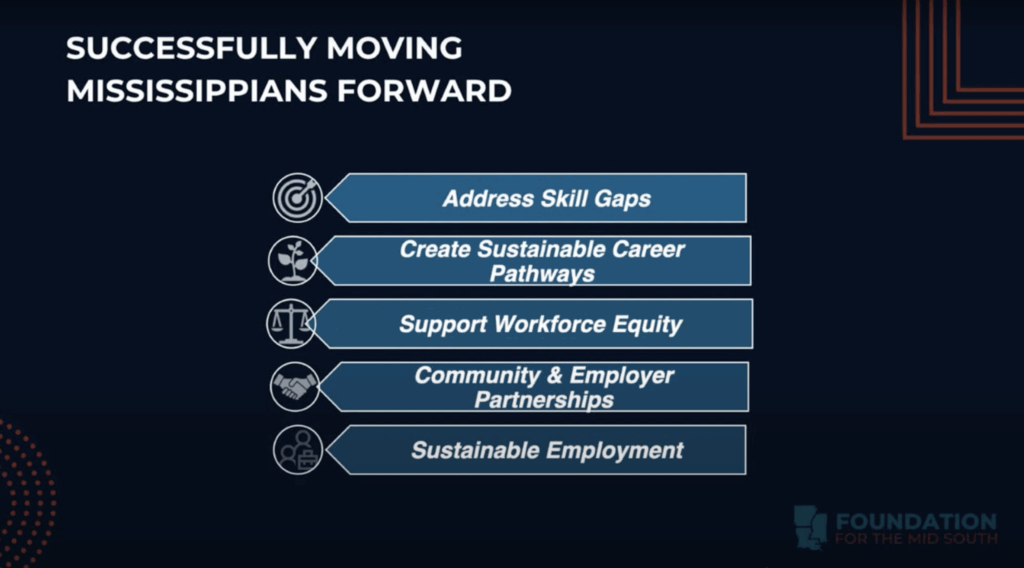
Structural Solutions, Shared Hope
The panel closed with a reminder that economic mobility is about more than individual effort. As Dr. Kent explained, “Structural problems require structural solutions, not just individual ones.”
For the Mid South, those solutions start with collaboration. Funders, policymakers, and local leaders must work together to create conditions where families can thrive. And while the data is daunting, Batteast underscored what keeps the work moving: “Our deepest hope comes from the creativity and resilience of the people in the Delta, even after generations of systematic disinvestment.”
The Road Ahead
The message was clear: progress is possible, but it will not come from quick fixes. It will come from sustained investments, equitable access to opportunity, and a commitment to dismantling systemic barriers.
At its heart, economic mobility in the Mid South is not just about dollars and data. It is about giving every person, regardless of where they live, a fair shot at a better future.
Missed the live discussion? Click here to watch the full Pathways to Progress webinar.


